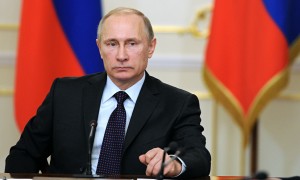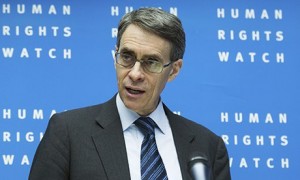
The Populist Or The Pragmatist: Which Do You Prefer?
January 15th, 2017
I have been thinking about the nature of leadership, recently. A few things have turned my thoughts in this direction:
Donald J. Trump will be inaugurated as President of the United States of America in a few days’ time – a man who has been described by his predecessor (and more recently, by John Lewis, an icon of the civil rights movement) as unfit to sit in the Oval Office. Frankly, I am still trying to absorb and truly understand how this actually happened. Democracy is full of surprises. Mr. Trump’s opponent Hillary Rodham Clinton gained almost three million more votes than he did. Was this democracy? That’s the American system for you. What is undeniable is the wave of misogynistic, racist, disrespectful and demeaning language and behavior that swamped the election campaign, shaming and humiliating many Americans I know. The future is murky.

President Elect Donald Trump is already sorting out which media houses are his enemies and which are sympathetic buddies. “No! Not you,” he cries to certain journalists who are not in favor with him.
A Twitter discussion took place today regarding the leadership styles and achievements of various Prime Ministers of the past. This was sparked by a speech by former PM Edward Seaga at the National Gallery. He was speaking at the marvelous exhibition of Intuitive art from the Cox Collection, now on display at the National Gallery (and which should not be missed!) From Mr. Seaga’s words it became clear that he studied and always defended the indigenous culture of Jamaica; that is, that he studied it in depth and defended and protected it in practice, too. Younger generations may see him as a somewhat daunting figure, tainted with political tribalism. However, no leader is one-dimensional. One person declared that Norman Manley was the best Prime Minister, bar none. I recently reviewed the most recent biography of his son Michael and found – yet again – that he was by no means a monolith, either. Perhaps he wanted to be, but he was not. People only made him so.

This is leadership: Pope Francis welcomes President Abbas in Rome for the canonisation of two Palestinian nuns, in May 2015. (Photo: AFP)
There is also the example of principled leadership – epitomized so many times by President Barack Obama; and also by Pope Francis, who yesterday (January 14) met with Palestinian President Mahmoud Abbas to inaugurate his country’s first Embassy to the Holy See. Abbas called this as taking a “moral, legal and political stand through recognizing the state of Palestine along the pre-1967 borders.” Meanwhile, the President-Elect, cheered by his supporters at a farcical press conference last week, is planning to (illegally) move the U.S. Embassy in Israel from Tel Aviv to occupied Jerusalem.
Finally, we have the emotionally charged issue of some church leaders, who seem to not understand the first thing about responsible behavior. Since I am not a “church person,” I am not sure that I can adequately comment on this. However, it seems to me that the congregations of these churches (mostly consisting of around 80 per cent women) have a great deal of their faith and conviction (and indeed, their own self-esteem) wrapped up in these male leaders; their pastors are apparently seen as a “vessel” through which God speaks. When they are found to have transgressed, the followers’ faith is crushed. Their leader has failed them, indeed; but it’s not as simple as that. The female followers invested so much in this man, who is now charged with violating young females.

The epitome of the political “strong man,” ex-KGB official Vladimir Putin knows well how to control and manipulate “in the name of the people.” He does not favor freedom of speech, and I don’t think he’s fond of Pussy Riot.
Human Rights Watch launched its World Report 2017 on January 12, with dire warnings that the rise of populist leaders – “strongmen” such as Trump, Vladimir Putin of Russia and some European politicians, as well as leaders of the Philippines, China and Turkey – do not bode well for human rights. This is hardly an exaggeration. How ironic that these “men of the people” are actually not for the people at all. They are primarily for themselves, their families, and to a lesser extent – their cronies, who are useful. Will these countries prosper? Are they prospering now?
However, people make leaders, and the people have been fooled, yet again. Personally, I prefer dull, uncharismatic leaders – something our current Prime Minister has been accused of, as if tough-guy talk and tactics are a necessary requisite for a Jamaican politician. Not in my view. I like someone who plods along methodically, tackling one issue at a time, if possible, and taking decisions that are not necessarily “popular.”
Yet it is oh, so much easier to go down that populist route, isn’t it – claiming, all the while, that “this is what the people want.” A populist leader is always going to have a crowd of sycophantic media and influencers for company – all quite happy to walk down that road with him. They are little more than propagandists, not interested in solutions, but caught up in the “hype.” They are all walking together into a fog of delusion and disaster.
Human Rights Watch’s Kenneth Roth comments on the demagogues in the 2017 Report:
“They all claim that the public accepts violations of human rights as supposedly necessary to secure jobs, avoid cultural change, or prevent terrorist attacks. In fact, disregard for human rights offers the likeliest route to tyranny.”
In light of our “fight against the crime monster” – does any of this sound familiar?
Tags: China, church, church leaders, Donald Trump, Edward Seaga, elections, Europe, human rights, Human Rights Watch, Jamaica, journalism, Kenneth Roth, leadership, Mahmoud Abbas, Michael Manley, Norman Manley, Palestine, Philippines, politicians, Pope Francis, populism, President Barack Obama, Prime Minister, social media, Turkey, U.S. Embassy, United States, Vladimir Putin
The Gleaner reserves the right not to publish comments that may be deemed libelous, derogatory or indecent.
To respond to The Gleaner please use the feedback form.
- We Are the Zoomers
- Living Online with Humans and Birds: NAOC 2020
- Human Trafficking and the Problem of Public Education
- Down Memory Lane
- Are We Ready to Recover from COVID-19?
- Road Safety Matters: Is Your Vehicle Safe?
- Sexual Harassment, Me Too, and the Minister’s Disturbing Giggle
- The Vulnerable Senior Citizens, Private Care Homes and COVID-19
- A Muddle Over Masks
- Here is Something Life-Saving You Can Do: Give Blood!



